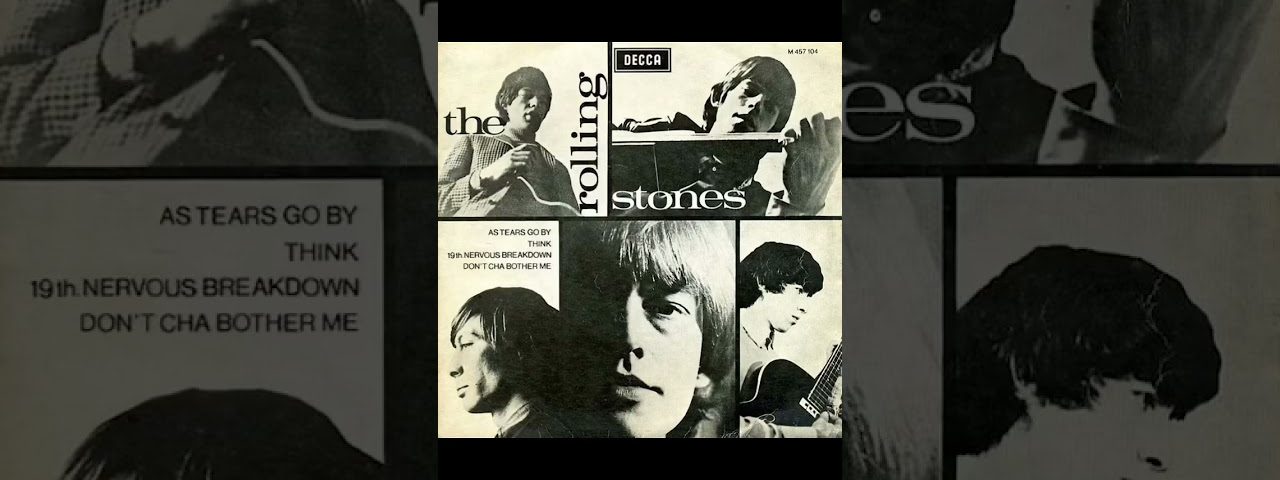By: Sam Kemp
The best songs are able to capture a specific time and place in one mellifluous breath. There are countless songs by The Rolling Stones that do just that, tracks that seem to evoke the weather the day they were recorded, as well as the thoughts, feelings and attitudes of the songwriters themselves. But this presents a problem for touring musicians such as The Rolling Stones.
As creators of some of the world’s most recognisable music, they are inextricably bound to their songs. So what if one of those songs were to stop speaking to them? What if it were to cease carrying any real meaning and, so many years later, became almost painful to sing? Well, as Mick Jagger explained in an interview in the 1990s, it turns out that there are a whole range of Stones’ songs that seem so naive and ignorant, they seem to belong to another band entirely.
In 1995, Mick Jagger sat down for an interview, in which he was asked to remember some of the highlights of his career with The Rolling Stones. Far from being in any way self-congratulatory, Jagger ended up revealing that he was never much of a fan of many of The Stones’ classic records, such as Exile on Main St. and Their Satanic Majesties Request. But there was one particular song that he couldn’t stop himself from taking a swipe at, a track he wrote with Kieth Richards called ‘As Tears Go By’.
It was originally released by Marianne Faithfull in 1964. In her hands, the song became a delicate slice of pastoral folk, laced with oboes and lush strings. Describing the writing process, Jagger said: “I wrote the lyrics, and Keith wrote the melody. But in some rock, you know, there’s no melody until the singer starts to sing it. Sometimes there’s a definite melody, but quite often it’s your job as the singer to invent the melody “
Despite the fact that ‘As Tears Go By’ reached number nine in the Billboard Hot 100, and won Faithfull a dedicated fanbase across the Atlantic, Mick Jagger found it strangely difficult to appreciate as time moved on. Even after The Rolling Stones did their own take on the track, the song still seemed somewhat out of place in the band’s fairly butch catalogue. “It’s a very melancholy song for a 21-year-old to write: ‘The evening of the day, watching children play,’” Jagger quoted, “It’s very dumb and naive, but it’s got a very sad sort of thing about it, almost like an older person might write. You know, it’s like a metaphor for being old: You’re watching children playing and realizing you’re not a child.”
The difficulty Jagger had with ‘As Tears Go By’ wasn’t down to anything as simple as instrumentation or production value. For him, the song seemed almost frighteningly honest. It seemed to capture something subconscious that unnerved him, that made him feel ever so slightly uncomfortable. Let’s be honest here, The Rolling Stones red-blooded blues style hardly provides fertile ground for earnest declarations of profound emotion. But in ‘As Tears Go By’ Jagger saw himself reflected in a hall of mirrors.
In his own words: “It’s a relatively mature song considering the rest of the output at the time. And we didn’t think of doing it [initially], because the Rolling Stones were a butch blues group.” However, the track lay the foundation for many of the band’s most poignant numbers including ‘No Expectations’ and ‘Wild Horses’, tracks that are driven by a quiet, more subtle songcraft than many of their swaggering blues tracks. Perhaps Jagger was just too young to appreciate ‘As Tears Go By’ when it was first written, and it was only years later that he finally understood what he’d been singing about all along.
